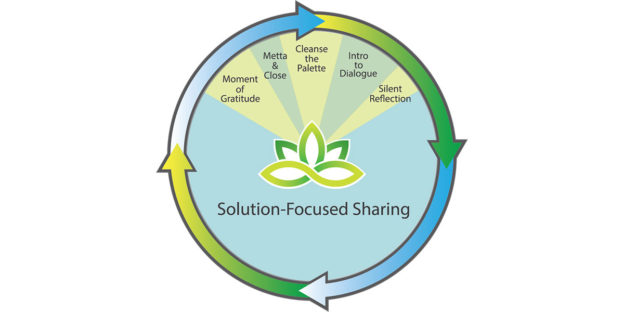Centered Recovery Launches Free Support Group Program
Mindfulness based non-12 step meetings provide new format for growing movement
Roswell, Ga. – One of the most valuable attributes of recovery support group meetings is the human connection. Some like to call it the fellowship. Feeling like others share in your interests and goals and understand what it’s like to overcome substance abuse is not something they can get just anywhere.
Having a group of peers to foster connection and a sense of belonging can be incredibly beneficial and often very therapeutic. Helping others along the way is also common, and meetings provide a venue for doing that as a sponsor or mentor.
Thankfully, there are thousands of meetings available for people who follow the traditional 12 step route, but for those who want something different, their options are fairly limited. Although there are a few alternatives, there is still a large gap in this space that needs to be filled, which is what led Centered Recovery to create a new recovery meeting platform and make it available for anyone to use.
“We wanted to provide a universally applicable recovery support group format that is non-religious, yet can also foster spiritual growth and deeper understanding of oneself,” says Krista Smith, Co-Founder and Program Director of Centered Recovery Programs. “When people are able to increase their awareness and boost resiliency, they tend to find so much more than sobriety, such as a recognition of their innate health and wellness that is always present within them.”
The hour-long meeting format includes several components, such as instruction on listening and presence, an introduction to mindfulness, solution-focused sharing, expressing gratitude and extending goodwill. The bulk of the group discussion during the sharing process is centered around main topics such as personal identity, dealing with cravings, self care, acceptance, contribution and an inside out understanding.
Centered Recovery meetings are inclusive and non-judgmental. They provide a platform for anyone looking for a sense of belonging and a new path to sustaining long-term recovery from substance abuse and other associated behaviors. One thing people may notice right away is that participants don’t introduce themselves as “addicts” or “alcoholics,” as the organizers simply feel that the labels may not always apply, and someone doesn’t need to fit into any specific category in order to attend.
For more information, visit http://centeredrecovery.org, where you can read more about the meetings, download a meeting guide, view the growing list of groups, register to host a meeting, and more. You can also email info@centeredrecovery.org.
###






